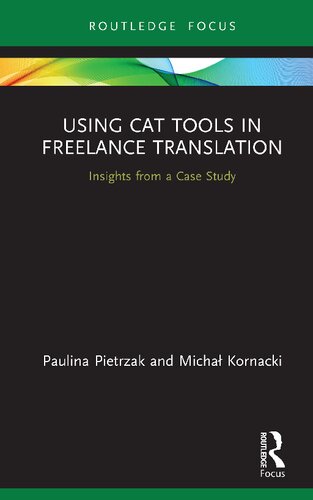

Most ebook files are in PDF format, so you can easily read them using various software such as Foxit Reader or directly on the Google Chrome browser.
Some ebook files are released by publishers in other formats such as .awz, .mobi, .epub, .fb2, etc. You may need to install specific software to read these formats on mobile/PC, such as Calibre.
Please read the tutorial at this link: https://ebookbell.com/faq
We offer FREE conversion to the popular formats you request; however, this may take some time. Therefore, right after payment, please email us, and we will try to provide the service as quickly as possible.
For some exceptional file formats or broken links (if any), please refrain from opening any disputes. Instead, email us first, and we will try to assist within a maximum of 6 hours.
EbookBell Team

0.0
0 reviewsThis book explores the impact of applying computer-assisted (CAT) tools in freelance translation toward better understanding translators’ strategies, preferences, and challenges in using new technologies and identifying areas of enhancement in translator training.
The volume offers a brief overview of the latest developments in technology in translation, examining such issues as the effect on the translation process and the dynamics of the translator-technology interaction. Drawing on data from a study with active translators in Poland, Pietrzak and Kornacki examine the underlying factors underpinning translators’ lack of engagement with these tools, including such issues as prevailing pre-conceptions around technology and limited knowledge hindering the most efficacious use of these resources and the subsequent impact on translator identity. Taken together, the book brings together these insights to help pinpoint freelance translators’ needs more effectively and adapt training programmes accordingly.
The volume will be of interest to scholars in translation studies with an interest in process and technology as well as active translators.